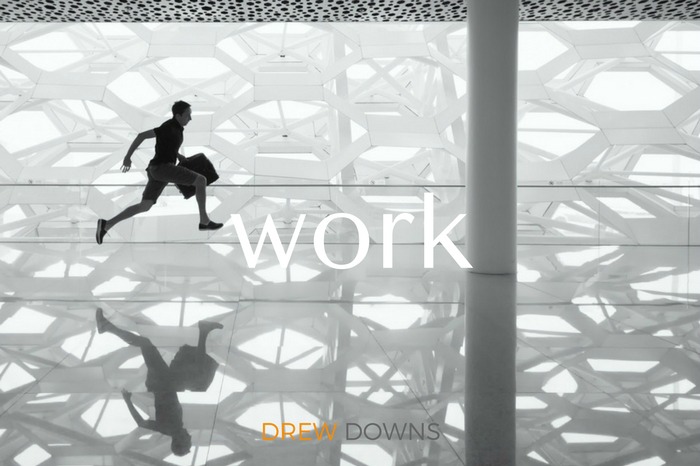Full disclosure: Keeping myself organized is not my spiritual gift.
You know those articles about the creative people with the messy desks? They’re written to make me feel better about myself.
But I’ve come to believe that a Christian obsession with being together, organized, and effective is actually dysfunctional.
I’m not a total slob. Just disordered. I’ve always known that about myself. So when I left seminary I bought a Franklin Planner, read Steven Covey’s book, wrote a eulogy and a manifesto, and organized my life.
There was virtually no fundamental difference in my effectiveness. If anything, my anxiety about being “professional” had the opposite effect on my leadership.
So of course I had to try something else.
I then read Getting Things Done and learned how to organize my time and planning.
I set up binders and planners with so many different systems, all to varying degrees of little to no success.
All my organizing and systematizing and planning got me nowhere. Not because I lack discipline, but because they aren’t a panacea for the challenges of life and the anxiety of not getting our stuff done.
Our obsession with stuff is unhealthy.
And our obsession with effectiveness, reward, and success is no different from obsessing about power, money, and influence.
None of that is the gospel. They may help the gospel, but often we use them to replace the gospel.
The Protestant Work Ethic is an unhealthy belief system.
I’ve often derided the Protestant Work Ethic by saying it encourages us to “work harder, not smarter.”
Working for Saginaw Habitat for Humanity, I was taught to measure twice and cut once. The Protestant Work Ethic feels like an encouragement to measure once, cut twice, then get ten more boards, you worthless pile of feces!
Its lionizing of hard work and the primacy of personal effort over community-building and social cohesion makes it a constant troublemaker for American Christians. But its view of work becomes increasingly destructive the further away from the field our work gets.
Information technology, banking, hedge-fund management, and other high-yield jobs are split from those who serve these same people at call-centers, cash their paychecks, or serve them their coffee.
While the epistles are full of encouragement for discipline and hard work, it certainly isn’t the only way to build a community.
Nor does hard work relate at all to income, merit, ability, or dignity.
Our economic disparity today has nothing to do with how hard we’re working and everything to do with the way our work relates to other work.
People are working harder and harder with no time off and little space to grow and no time for families and regardless of skill and training and income bracket and circumstance, they, as a child of God, deserve the respect and dignity of love. Period.
Do you see what it does? It undermines our belief in a God whose grace is given without regard to merit. Unearned.
How the hell can we believe that about a generous and merciful God of love for all of us and also believe hard work is the key to holiness? It is as theologically harmful as our stupid views of sex.
We’re builders of the Kin-dom, not “Things”
On October 14, we celebrated the life of Samuel Isaac Joseph Schereschewsky, Bishop of Shanghai. A prolific writer and translator, Schereschewsky served the church in China. As illness began to reduce his function, he had to give up his episcopate, but he didn’t stop serving the church. Over several years, hours per day, Schereschewsky used his one good finger to tap away at the typewriter to complete his translation of the Bible.
Can you imagine? The pain and diligence? But I also see more than commitment to some task for the sake of commitment or to be a good person. I see drive beyond the normal expectations to love and serve the church.
When I turn to the saints of the church, I don’t look at them as paragons of virtue, or the greatest of human effectiveness.
I look for the love of Christ in the midst of adversity. I look for the holy in the work.
It isn’t the work or the effort or the effectiveness. It’s the Christ. The visibility of the holy.
While some worry about being the most effective Christian, working themselves sick. Maybe at their death beds, worrying if God will love them, if they did enough, if they won the race. I don’t. I’m busy looking for God in everything. Even in the lazy freeloaders. I don’t have time for this nonsense about hard work.
* * *
This is from a series on Choices. We have plenty more choices to make!


Leave a Reply